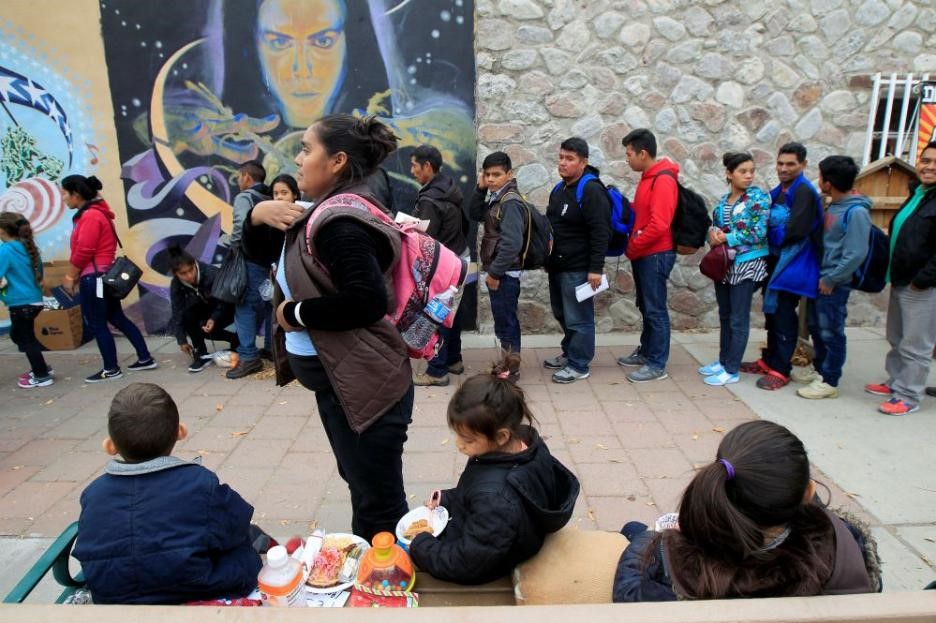We believe that humans are created in God’s image and likeness and that, through Jesus, we share in the divine nature of God. Godliness can be found in all humans – rich and poor, saints and sinners, everyone.
Immigration is a polarizing issue. It is easy to allow statistics and rhetoric dehumanize immigrants. If we are desensitized to their humanity, we also lose sight of the divinity within immigrants and all people.
The article within this lesson is a strong reminder to welcome the strangers in our midst. It quotes the admonition from the Letter to the Hebrews that our hospitality could indeed mean we’re welcoming God’s messengers. More directly, our actions and attitudes toward immigrants can fulfill Jesus’ charge, in Matthew 25, that when we welcome strangers, we welcome him.
Create two sets of nametags or headbands for two separate role play activities. In each, participants will display a name or role on their foreheads so that everyone but themselves is aware of their identity (you'll need to help so they don't see their role). Each round will have six participants, with the remaining students observing. For the first round, the identities will include:
- Movie star
- MVP athlete
- Pope
- World leader
- Billionaire
- Jesus
Instruct participants to mingle and greet each other using only appropriate gestures and facial expressions. After about 15 seconds, pause and invite participants to guess their identity based on how others treated them. Then instruct participants to continue greeting each other, making appropriate (but not obvious) spoken hints. After a minute, pause and invite participants to again guess at their identity. Conclude by identifying all characters.
For the second round, characters will include:
- Homeless person
- Awkward new student
- Newly released prisoner
- Drug addict
- Undocumented immigrant
- Jesus
Follow the same pattern as the first exercise, first having participants mingle silently, then adding small verbal hints.
After the second round, discuss the following as a large group:
- How were the characters in the first round treated compared to those in the second round?
- Do you find it easier to interact with people who seem to have their lives together or people who are struggling and living on the margins? Explain why.
- How was Jesus treated compared to the other individuals?
Conclude by saying: “Angels are God’s messengers. Consider that not all of them fly or strum harps. Some angels might trudge along, dragging dusty backpacks. What message might today’s unlikely angels have for us? How might the way we welcome immigrants bring us closer to God’s will for us?”
Lord, when were you a stranger?
When were you in danger?
When have you, like each of us at times, been vulnerable, been on the outside?
Help us, Lord, to embrace all people and surprise us with the blessing of an “aha!”
As we humbly, joyfully recognize you among us.
Amen.
Please give us your feedback! Fill out a quick survey about this lesson and how we can serve you better. Remember that its title is "Supporting asylum-seekers in Texas"
Tell us what you think about this resource, or give us ideas for other resources you'd like to see, by contacting us at education@globalsistersreport.org
